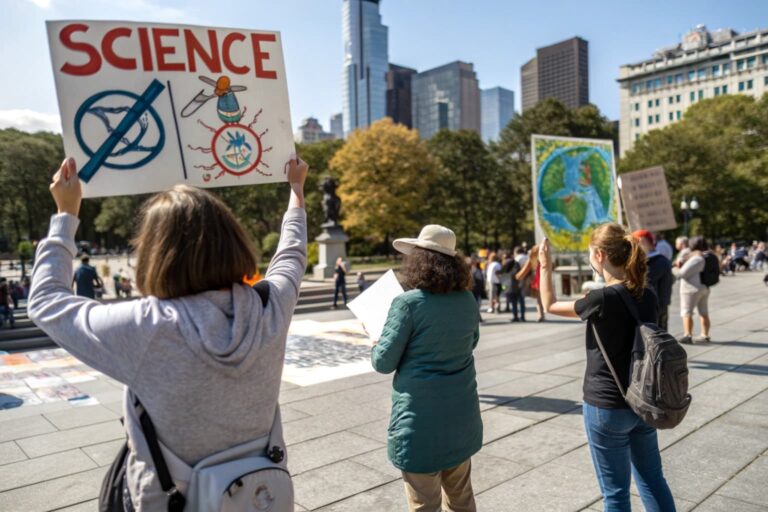Disrupting the Cosmos, Disregarding the Climate? The Unintended Consequences of the Trump-Musk Tech Agenda
Introduction
The alliance between Donald Trump and Elon Musk sets the stage for significant advancements in technology and space exploration, with potential implications for climate policy. Musk’s endorsement, facilitated through substantial contributions via his America PAC, was a crucial factor in Trump’s campaign success, highlighting the influential role of tech leaders in shaping political outcomes. As the U.S. embarks on this new political chapter, the interplay between technological innovation, space exploration, and environmental policy will be closely watched, both domestically and internationally.
Space Exploration Revitalized
Building on the previous Trump administration’s emphasis on space exploration, the renewed term is likely to further align with Musk’s ambitious goals for SpaceX, particularly the revolutionary Starship project. This convergence could lead to enhanced autonomy for SpaceX through expedited regulatory approvals, potentially accelerating the development and deployment of Starship. With potentially increased funding and policy support, Musk’s vision for making humanity multi-planetary through the colonization of Mars might advance more rapidly, positioning the U.S. at the forefront of interplanetary exploration and habitation. The broader implications for U.S. space policy are significant, with potential shifts in funding allocations redefining NASA’s priorities and emphasizing collaborative efforts with private space companies.
The Starship project’s success could also spur growth in the commercial space sector, with increased federal contracts for ventures like SpaceX driving innovation, reducing costs, and enhancing the overall efficiency of space exploration endeavors. As the U.S. potentially regains its leading position in space exploration, this could influence global perceptions of American technological prowess and inspire new generations of scientists and engineers. However, the evolving role of NASA and the global space race will require careful navigation to ensure collaborative progress.
Technological Advancements and the Autonomous Future
Trump’s historical advocacy for reduced regulatory barriers suggests a favorable environment for tech companies to innovate and grow. Tesla, at the forefront of autonomous vehicle and robotics development, might experience accelerated growth in AI-powered self-driving systems and autonomous robotics. While this could transform the transportation sector and various industries, it also raises concerns about balancing innovation with oversight, ensuring public safety, and addressing ethical considerations. The development of adaptable regulatory frameworks will be crucial in fostering innovation while mitigating potential risks.
The broader tech sector is likely to feel the effects of deregulation, influencing startups and established companies alike, and potentially attracting more international tech talent. However, the economic growth and job market evolution resulting from technological advancements will require careful management, including workforce retraining programs to address the challenges of an increasingly automated economy. As Silicon Valley and other U.S. tech hubs continue to evolve, their global influence and attractiveness to international talent will depend on striking a balance between innovation and responsible growth.
Climate Policy Under Trump’s Presidency
Trump’s previous stance on climate change and his administration’s actions provide insight into potential policy reversals. An anticipated rollback of climate initiatives could lead to eased restrictions on fossil fuel production, potentially straining international relationships and global climate cooperation efforts. Reduced environmental oversight might affect various sectors, from automotive to energy, with profound implications for air and water quality. In contrast, Elon Musk’s commitment to sustainable energy solutions through Tesla might intensify, serving as a counterbalance to potential environmental deregulations.
Musk’s personal advocacy for climate action could help maintain a national focus on sustainable technologies, even in the face of policy shifts. However, the disconnect between Trump’s climate stance and Musk’s sustainability goals might lead to increased reliance on state-level climate initiatives and private sector leadership in driving environmental innovation. The global community’s response to U.S. policy shifts will be crucial in maintaining momentum on climate action, with technological solutions from the U.S. and other nations playing a vital role in addressing environmental challenges.
Global Tech Leadership and the U.S. Landscape
Increased funding for strategic sectors like AI, space technology, and green energy could enhance innovation, drive breakthroughs, and solidify the U.S.’s position as a global tech leader. This, in turn, might attract international talent and investment, further enriching the U.S. tech ecosystem. The growth of high-tech industries could lead to new job opportunities, necessitating targeted workforce development programs, and contribute to more balanced regional economic growth as tech hubs emerge or expand across the U.S.
However, navigating the delicate balance between fostering technological innovation, ensuring sustainable growth, and addressing the imperative of climate change mitigation will be the challenge ahead. The global community’s observations and cooperative efforts will be essential in maintaining progress on climate action, with the U.S. tech sector’s innovations playing a critical role in providing global solutions to environmental challenges, despite domestic policy fluctuations.






